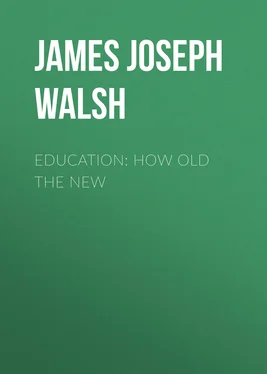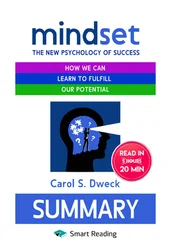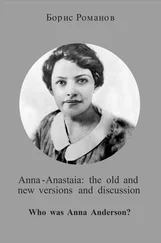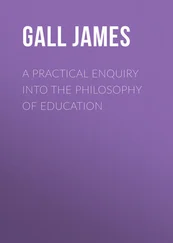James Walsh - Education - How Old The New
Здесь есть возможность читать онлайн «James Walsh - Education - How Old The New» — ознакомительный отрывок электронной книги совершенно бесплатно, а после прочтения отрывка купить полную версию. В некоторых случаях можно слушать аудио, скачать через торрент в формате fb2 и присутствует краткое содержание. Жанр: foreign_prose, foreign_edu, foreign_antique, на английском языке. Описание произведения, (предисловие) а так же отзывы посетителей доступны на портале библиотеки ЛибКат.
- Название:Education: How Old The New
- Автор:
- Жанр:
- Год:неизвестен
- ISBN:нет данных
- Рейтинг книги:3 / 5. Голосов: 1
-
Избранное:Добавить в избранное
- Отзывы:
-
Ваша оценка:
- 60
- 1
- 2
- 3
- 4
- 5
Education: How Old The New: краткое содержание, описание и аннотация
Предлагаем к чтению аннотацию, описание, краткое содержание или предисловие (зависит от того, что написал сам автор книги «Education: How Old The New»). Если вы не нашли необходимую информацию о книге — напишите в комментариях, мы постараемся отыскать её.
Education: How Old The New — читать онлайн ознакомительный отрывок
Ниже представлен текст книги, разбитый по страницам. Система сохранения места последней прочитанной страницы, позволяет с удобством читать онлайн бесплатно книгу «Education: How Old The New», без необходимости каждый раз заново искать на чём Вы остановились. Поставьте закладку, и сможете в любой момент перейти на страницу, на которой закончили чтение.
Интервал:
Закладка:
For instance, nothing is more common in the mouths of certain kinds of scholars than the expressions of wonder as to why men did not study nature more assiduously before our time. Here is a magnificent open book full of the most alluring lessons which any one may study for himself, and that somehow it is presumed men neglected down to our time. We are the age of nature students, and preceding times are looked at askance for having neglected the opportunities that lay so invitingly open to them in this subject. It has always been a wonder to me how people dare to talk this way. Our old literatures are full of observations on nature. In my book on "The Popes and Science" I take Dante as a typical product of the universities of the thirteenth century, and show without any difficulty as it seems to me, that there is no poet of the modern time who can draw figures from nature which demand even a detailed knowledge of nature with so much confidence as Dante. He knows the most intimate details about the birds, about many animals, about the ways of flowers, about children, describes some experiments in science, has a wide knowledge of astronomy and in general is familiar with nature quite as much if not more than any modern writer not ex professo a naturalist. He describes the metamorphosis of insects, how the ants communicate with one another, knows the secrets of the bees and exhibits wide knowledge of the secrets of bird life.
The presumption that people did not study nature in the olden time is quite unjustified. They did not write long books about trivial subjects of nature-study. They did not conclude that because they were seeing something for the first time, that that was the first time in the world's history it had ever been seen. They were gentle, kindly scholars who assumed that others had eyes and saw too, and as fortunately there was no printing press there was not that hurried rushing into print, with superficial observations and still more superficial conclusions, which has characterized so much of our recent literature of nature-study and that has been so well dubbed "nature faking." Of course we have had faking of the same kind in nearly everything else: we have history faking in our supposed historical romances, science faking in our pseudo-science, science-history faking in our ready presumption that the men of the olden time could not have had our interests, and, above all–may I now say it?–in our cheap conclusion that there must have been some reason for their lack of interest in science, and then the assumption without anything further, that it must have been because of the Church.
Just as soon as there is question of there having been any serious scientific study during the Middle Ages, in the sense of observations in physical science, investigation of the physical phenomena of nature and the drawing of conclusions from them and the evolving of laws, there are a large number of people who consider themselves very well informed, who will at once object that this must be quite absurd, since at this time Lord Chancellor Bacon had not as yet laid down the great foundations of the physical sciences in his discussion of inductive reasoning. I have already ventured to suggest, in the address on "The First Modern University," how utterly ridiculous any such notion is. I have quoted Lord Macaulay and Huxley as ridiculing those who entertained such an idea. Here I may be permitted to recur to the subject by quotations from the same authorities. I have often found that anything I myself said in this matter was at once considered as quite incredible, since my feelings were entirely too favorable toward the Middle Ages and then my religious affiliations are somehow supposed to unfit me for scientific thinking. Fortunately Macaulay and Huxley have expressed themselves in this matter even more vigorously than I would be likely to, and so I may simply quote them.
As Lord Macaulay wrote in his well-known essay:
"The vulgar notion about Bacon we take to be this, that he invented a new method of arriving at truth, which method is called induction, and that he detected some fallacy in the syllogistic reasoning which had been in vogue before his time. This notion is as well founded as that of the people who, in the Middle Ages, imagined that Virgil was a great conjurer. Many who are far too well informed to talk such extravagant nonsense entertain what we think incorrect notions as to what Bacon really effected in this matter."
Still more apposite is what Professor Huxley has to say. Discoursing on the phenomena of organic nature, after warning his auditors not to suppose that scientific investigation is "some kind of modern black art," he adds: "I say that you might easily gather this impression from the manner in which many persons speak of scientific inquiry, or talk about inductive and deductive philosophy, or the principles of the 'Baconian philosophy.' To hear people talk about the great Chancellor–and a very great man he certainly was–you would think that it was he who had invented science, and that there was no such thing as sound reasoning before the time of Queen Elizabeth.
"There are many men who, though knowing absolutely nothing of the subject with which they may be dealing, wish nevertheless to damage the author of some view with which they think fit to disagree. What they do is not to go and learn something about the subject; . . . but they abuse the originator of the view they question, in a general manner, and wind up by saying that, 'After all, you know, the principles and method of this author are totally opposed to the canons of the Baconian philosophy.' Then everybody applauds, as a matter of course, and agrees that it must be so."
Lord Bacon himself so little understood true science that he condemned Copernicanism because it failed to solve the problems of the universe, and condemned Dr. Gilbert, the great founder in Magnetism, whose work was the best exemplification of inductive science of that time. Of course Bacon did not invent science nor its methods. He was only a publicist popularizing them. They had existed in the minds of all logical thinkers from the beginning. His great namesake, Friar Bacon, much better deserves to be thought a pioneer in modern physical science than the chancellor,–and he was a mediaeval university man.
We are prone to think of the old-time universities as classical or literary schools with certain limited post-graduate features, more or less distantly smacking of science. The reason for this is easy to understand. It is because out of such classical and literary colleges our present universities, with their devotion to science, were developed or transformed during the last generation or two. It is to be utterly ignorant of mediaeval education, however, to think that the classical and literary schools are types of university work in the Middle Ages. The original universities of the thirteenth and fourteenth centuries paid no attention to language at all except inasmuch as Latin, the universal language, was studied in order that there might be a common ground of understanding. Latin was not studied at all, however, from its literary side; to style as such the professors in the old mediaeval universities and the writers of the books of the time paid no attention. Indeed it was because of this neglect of style in literature and of the niceties of classical Latin that the university men of recent centuries before our own, so bitterly condemned the old, mediaeval teachers and were so utterly unsympathetic with their teaching and methods. We, however, have come once more into a time when style means little, indeed, entirely too little, and when the matter is supposed to be everything, and we should have more sympathy with our older forefathers in education who were in the same boat. We have inherited traditions of misunderstanding in this matter, but we should know the reasons for them and then they will disappear.
Читать дальшеИнтервал:
Закладка:
Похожие книги на «Education: How Old The New»
Представляем Вашему вниманию похожие книги на «Education: How Old The New» списком для выбора. Мы отобрали схожую по названию и смыслу литературу в надежде предоставить читателям больше вариантов отыскать новые, интересные, ещё непрочитанные произведения.
Обсуждение, отзывы о книге «Education: How Old The New» и просто собственные мнения читателей. Оставьте ваши комментарии, напишите, что Вы думаете о произведении, его смысле или главных героях. Укажите что конкретно понравилось, а что нет, и почему Вы так считаете.












